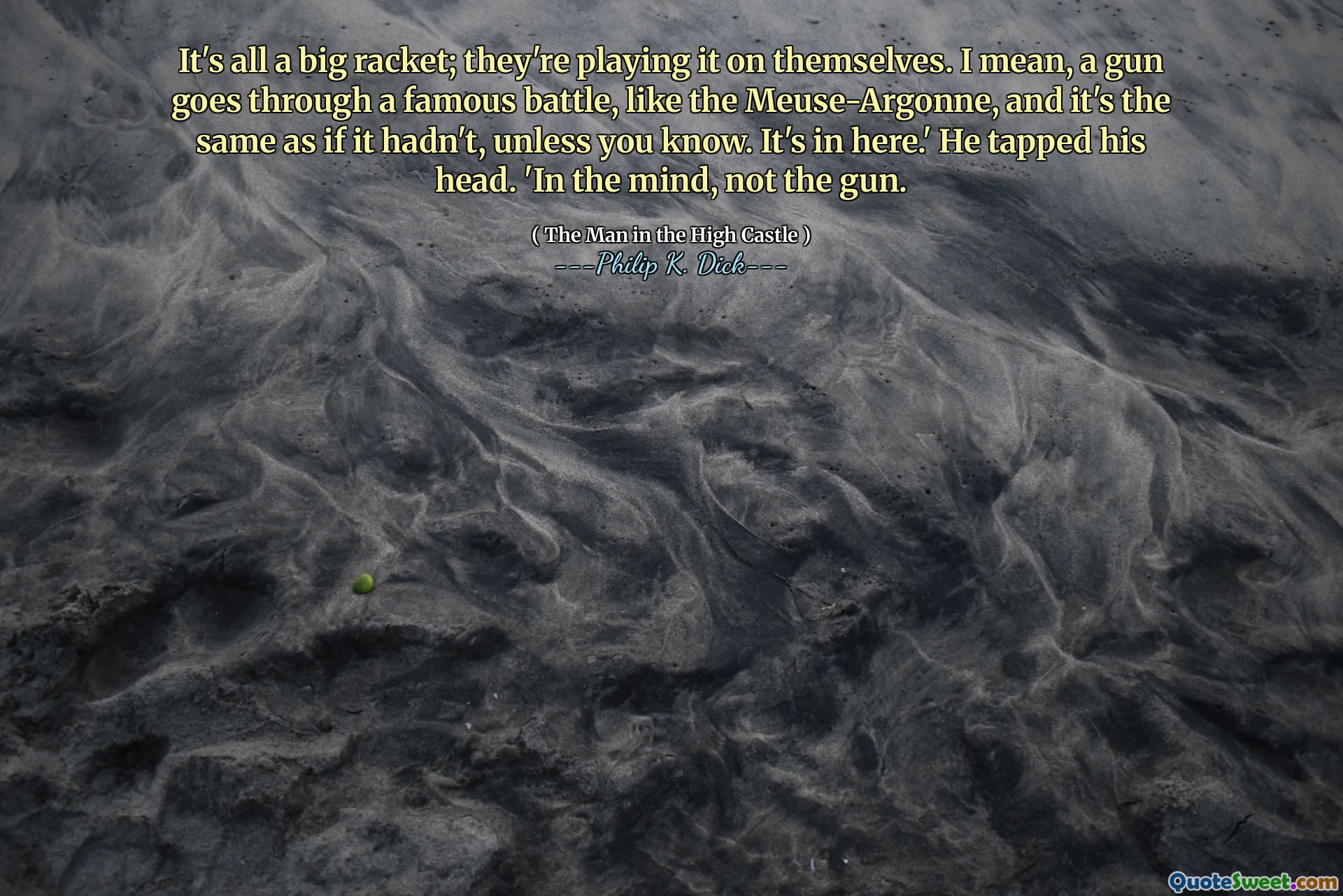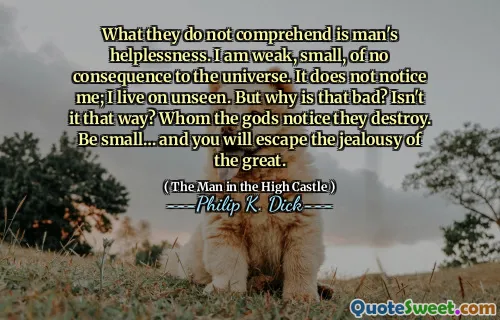
It's all a big racket; they're playing it on themselves. I mean, a gun goes through a famous battle, like the Meuse-Argonne, and it's the same as if it hadn't, unless you know. It's in here.' He tapped his head. 'In the mind, not the gun.
In Philip K. Dick's "The Man in the High Castle," the notion of significance is explored through the lens of memory and perception. A character reflects on how the history and value of an object, like a gun that has participated in a notable battle, largely depend on individual interpretation. Without the context of its past, the object holds no inherent meaning; its legacy exists solely in the minds of those who understand it.
This perspective suggests that our understanding of history and experiences is often constructed in our minds rather than in the physical artifacts themselves. The character emphasizes that the true essence of an object's relevance comes from the memories and narratives we attach to it, highlighting the power of perception in shaping our reality.











